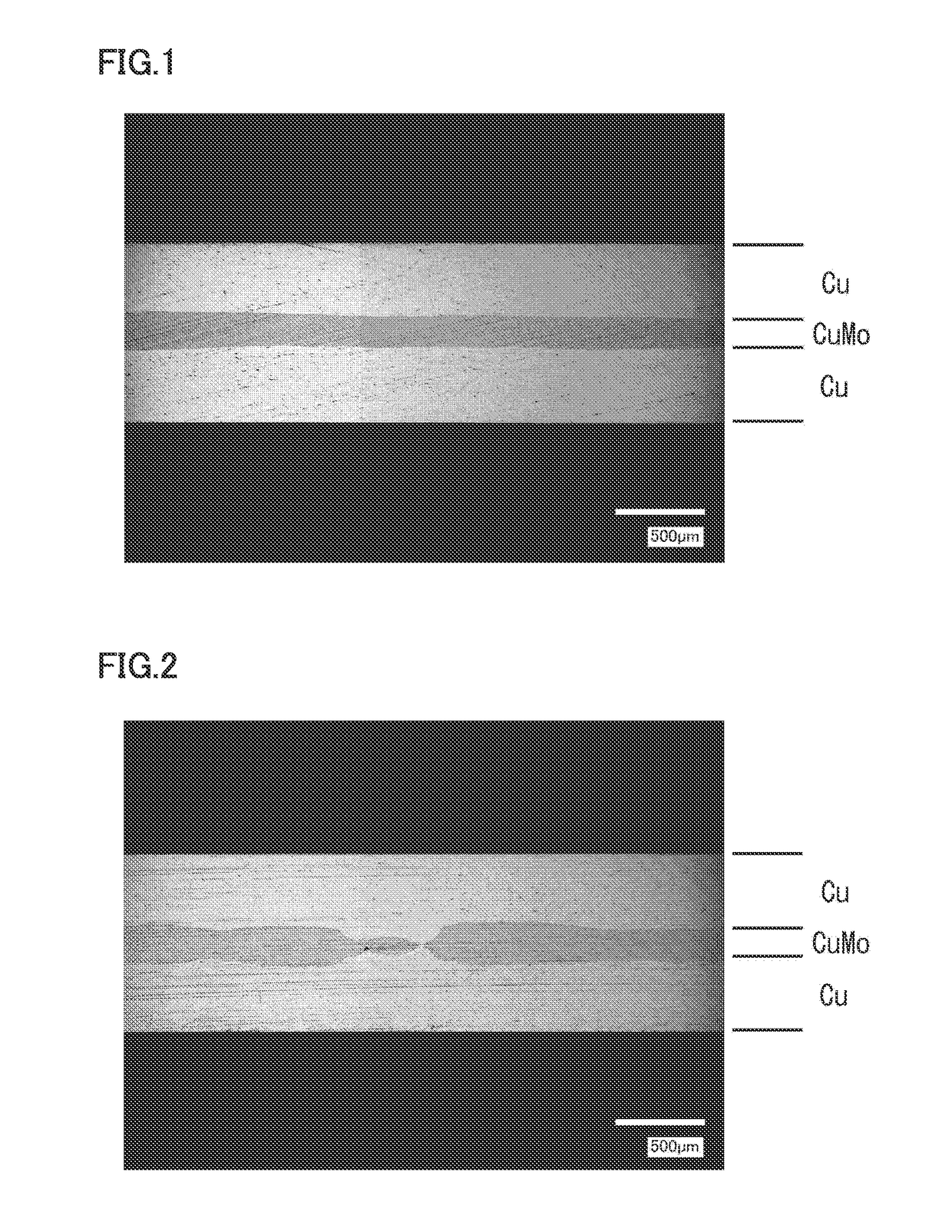Heat spreader and method for manufacturing the same
a technology of heat spreader and heat spreader plate, which is applied in the field of heat spreader, can solve the problems of affecting the stability of the nickel plating layer directly on the surface, the element itself may overheat and malfunction, and the package which covers the element may be broken, etc., to reduce the variation, reduce the thickness of the cu—mo layer, and reduce the effect of heat conductivity
- Summary
- Abstract
- Description
- Claims
- Application Information
AI Technical Summary
Benefits of technology
Problems solved by technology
Method used
Image
Examples
example 1
[0135](Formation of Porous Body)
[0136]Mo powder having an average particle size measured by the Fisher method of 3.9 μm was press-molded at a molding pressure of 100 MPa using a press machine, to fabricate a molded body in the shape of a plate having dimensions of 143 mm×174 mm×14.3 mm. The molded body had a molding density of 5.2 g / cm3.
[0137]Next, the molded body was sintered in a hydrogen atmosphere at 1000° C. for 1 hour using a firing furnace, to form a porous body. The porous body had an apparent density of 6.6 g / cm3 and a porosity of 35.3% by volume.
[0138](Fabrication of Cu—Mo Composite Body by Infiltrating Cu)
[0139]A Cu plate having a purity of 99.96% was placed on the above porous body, and they were heated in a hydrogen atmosphere at 1400° C. for 1 hour using the firing furnace, to infiltrate Cu into the porous body. Thereafter, extra Cu remaining on the surface of the porous body and the like was removed, to fabricate a Cu—Mo composite body having dimensions of 165 mm×131 ...
examples 9 and 10
[0159]Each heat spreader was manufactured as in Example 1, except for setting the total thickness of the stacked body including a Cu—Mo layer and two Cu layers and the total rolling reduction in the hot rolling and the cold rolling to values shown in Table 1.
examples 19 to 22
[0161]Each heat spreader was manufactured as in Example 1, except for using a Cu—Mo composite material having a ratio of Cu shown in Table 2.
PUM
| Property | Measurement | Unit |
|---|---|---|
| thickness | aaaaa | aaaaa |
| thickness | aaaaa | aaaaa |
| thickness | aaaaa | aaaaa |
Abstract
Description
Claims
Application Information
 Login to View More
Login to View More - R&D
- Intellectual Property
- Life Sciences
- Materials
- Tech Scout
- Unparalleled Data Quality
- Higher Quality Content
- 60% Fewer Hallucinations
Browse by: Latest US Patents, China's latest patents, Technical Efficacy Thesaurus, Application Domain, Technology Topic, Popular Technical Reports.
© 2025 PatSnap. All rights reserved.Legal|Privacy policy|Modern Slavery Act Transparency Statement|Sitemap|About US| Contact US: help@patsnap.com

